31 start with U start with U

Can the revolutionary government of Yoweri Museveni’s National Resistance Movement put Uganda back on the road from decay to development?
These informed assessments put the present situation in context. The contributors assembled as Museveni’s guerrillas were launching their final bid for power. They have finalized their contributions in the light of the Museveni government’s initial period of power.
Contributions by Ugandan academics and politicians interlock with those by scholars from across the world who have a concern for Uganda. Historians examine the period of colonialism. There are political studies of the quarter century since independence. There are detailed analyses of the economic realities for the Ugandan government in the period of international debt. The central role of education in national development is given due prominence.
Ali A. Mazrui ends the book by asking ‘Is Africa Decaying?’ The editors have put the consideration of the case of Uganda’s recent history within the context of Africa’s development crisis. Uganda has presented in an aggravated form the crisis common to many other African countries: infrastructural breakdown, mounting foreign debt, military regimes and waves of refugees.
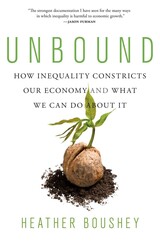
A Financial Times Book of the Year
“The strongest documentation I have seen for the many ways in which inequality is harmful to economic growth.”
—Jason Furman
“A timely and very useful guide…Boushey assimilates a great deal of recent economic research and argues that it amounts to a paradigm shift.”
—New Yorker
Do we have to choose between equality and prosperity? Decisions made over the past fifty years have created underlying fragilities in our society that make our economy less effective in good times and less resilient to shocks, such as today’s coronavirus pandemic. Many think tackling inequality would require such heavy-handed interference that it would stifle economic growth. But a careful look at the data suggests nothing could be further from the truth—and that reducing inequality is in fact key to delivering future prosperity.
Presenting cutting-edge economics with verve, Heather Boushey shows how rising inequality is a drain on talent, ideas, and innovation, leading to a concentration of capital and a damaging under-investment in schools, infrastructure, and other public goods. We know inequality is fueling social unrest. Boushey shows persuasively that it is also a serious drag on growth.
“In this outstanding book, Heather Boushey…shows that, beyond a point, inequality damages the economy by limiting the quantity and quality of human capital and skills, blocking access to opportunity, underfunding public services, facilitating predatory rent-seeking, weakening aggregate demand, and increasing reliance on unsustainable credit.”
—Martin Wolf, Financial Times
“Think rising levels of inequality are just an inevitable outcome of our market-driven economy? Then you should read Boushey’s well-argued, well-documented explanation of why you’re wrong.”
—David Rotman, MIT Technology Review
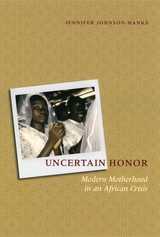
Combining insights from demography and cultural anthropology, Johnson-Hanks argues that Beti women delay motherhood as part of a broader attempt to assert a modern form of honor only recently made possible by formal education, Catholicism, and economic change. Through itinerant school careers and manipulations of marriage, educated Beti women now manage their status as mothers in order to coordinate major life events in the face of social and economic uncertainty.
Carefully researched and clearly written, Uncertain Honor offers an intimate look at the lives of African women trying to reconcile motherhood with new professional roles in a context of dramatic social change.
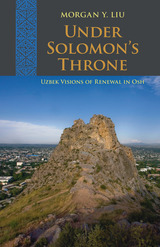
Winner of the 2014 Central Eurasian Studies Society Book Award in the Social Sciences.
Under Solomon’s Throne provides a rare ground-level analysis of post-Soviet Central Asia’s social and political paradoxes by focusing on an urban ethnic community: the Uzbeks in Osh, Kyrgyzstan, who have maintained visions of societal renewal throughout economic upheaval, political discrimination, and massive violence.
Morgan Liu illuminates many of the challenges facing Central Asia today by unpacking the predicament of Osh, a city whose experience captures key political and cultural issues of the region as a whole. Situated on the border of Uzbekistan and Kyrgyzstan—newly independent republics that have followed increasingly divergent paths to reform their states and economies—the city is subject to a Kyrgyz government, but the majority of its population are ethnic Uzbeks. Conflict between the two groups led to riots in 1990, and again in 2010, when thousands, mostly ethnic Uzbeks, were killed and nearly half a million more fled across the border into Uzbekistan. While these tragic outbreaks of violence highlight communal tensions amid long-term uncertainty, a close examination of community life in the two decades between reveals the way Osh Uzbeks have created a sense of stability and belonging for themselves while occupying a postcolonial no-man’s-land, tied to two nation-states but not fully accepted by either one.
The first ethnographic monograph based on extensive local-language fieldwork in a Central Asian city, this study examines the culturally specific ways that Osh Uzbeks are making sense of their post-Soviet dilemmas. These practices reveal deep connections with Soviet and Islamic sensibilities and with everyday acts of dwelling in urban neighborhoods. Osh Uzbeks engage the spaces of their city to shape their orientations relative to the wider world, postsocialist transformations, Islamic piety, moral personhood, and effective leadership. Living in the shadow of Solomon’s Throne, the city’s central mountain, they envision and attempt to build a just social order.
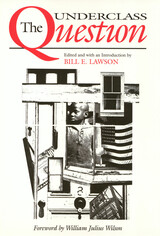
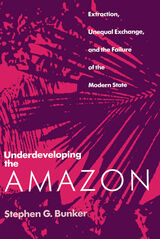

The "Celtic Tiger" phenomenon has made Ireland the focus of much attention in recent years. Other countries have openly declared that they want to follow the Irish economic and social model. Yet there is no book that gives a comprehensive, spatially-informed analysis of the Irish experience. This book fills that gap.
Divided into four parts—planning and development, the economy, the political landscape, and population and social issues—the chapters provide an explanation of a particular aspect of Ireland and Irish life accompanied by illustrative material. In particular, the authors reveal how the transformations that have occurred are uneven and unequal in their effects across the country and highlight the challenges now facing Irish society and policy-makers.
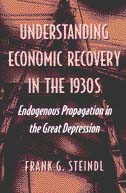
Providing strong evidence for the role of the quantity of money in the revitalization, the author ultimately concludes that the seemingly robust monetary explanation of the recovery is deficient, as is any that relies principally on aggregate demand impulses. An accurate understanding of this phenomenon must account for the inherent tendency of the economy to revert to its long-run high employment trend.
Frank G. Steindl is Regents Professor of Economics and Ardmore Professor of Business Administration, Oklahoma State University.
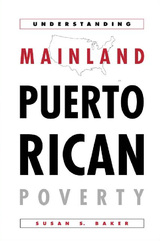
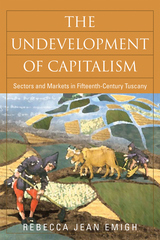
As a lucid explanation of capitalism that turns back the clock even further on its birth, The Undevelopment of Capitalism makes a significant contribution to the studies of capitalism, historical sociology, and theories of markets as economic and cultural institutions.
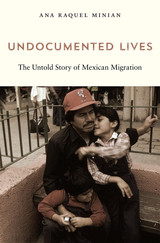
Frederick Jackson Turner Award Finalist
Winner of the David Montgomery Award
Winner of the Theodore Saloutos Book Award
Winner of the Betty and Alfred McClung Lee Book Award
Winner of the Frances Richardson Keller-Sierra Prize
Winner of the Américo Paredes Book Award
“A deeply humane book.”
—Mae Ngai, author of Impossible Subjects
“Necessary and timely…A valuable text to consider alongside the current fight for DACA, the border concentration camps, and the unending rhetoric dehumanizing Mexican migrants.”
—PopMatters
“A deep dive into the history of Mexican migration to and from the United States.”
—PRI’s The World
In the 1970s, the Mexican government decided to tackle rural unemployment by supporting the migration of able-bodied men. Millions of Mexican men crossed into the United States to find work. They took low-level positions that few Americans wanted and sent money back to communities that depended on their support. They periodically returned to Mexico, living their lives in both countries. After 1986, however, US authorities disrupted this back-and-forth movement by strengthening border controls. Many Mexican men chose to remain in the United States permanently for fear of not being able to come back north if they returned to Mexico. For them, the United States became a jaula de oro—a cage of gold. Undocumented Lives tells the story of Mexican migrants who were compelled to bring their families across the border and raise a generation of undocumented children.
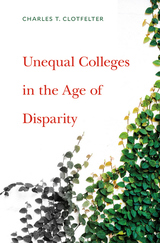
For decades, leaders in higher education have voiced their intention to expand college education to include disadvantaged groups. Colleges have embraced and defended public policies that push back against discrimination and make college more affordable. And yet, as the economist Charles Clotfelter shows, America’s system of undergraduate education was unequal in 1970 and is even more so today.
In Unequal Colleges in the Age of Disparity, Clotfelter presents quantitative comparisons across selective and less selective colleges from the 1970s to the present, in exploration of three themes: diversity, competition, and inequality. Diversity shows itself in the variety of colleges’ objectives but also in the disparity of the material and human resources at their disposal. Competition operates through both the supply and the demand sides of the market, with college admissions becoming more meritocratic even as the most desirable colleges choose to contend fiercely for top-tier students rather than accommodate rising numbers of qualified applicants. Clotfelter shows that exclusive colleges have also benefited disproportionately from America’s growing income inequality. As their endowments have ballooned, their students have become more academically advantaged, owing in part to the extraordinary steps affluent families take to groom their children for college admission.
Clotfelter finds that despite a revolution in civil rights, billions spent on financial aid, and the commitment of colleges to greater equality, stratification has grown starker. Top colleges cater largely to children of elites.
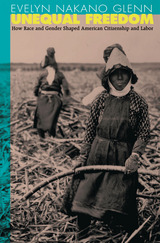
The inequalities that persist in America have deep historical roots. Evelyn Nakano Glenn untangles this complex history in a unique comparative regional study from the end of Reconstruction to the eve of World War II. During this era the country experienced enormous social and economic changes with the abolition of slavery, rapid territorial expansion, and massive immigration, and struggled over the meaning of free labor and the essence of citizenship as people who previously had been excluded sought the promise of economic freedom and full political rights.
After a lucid overview of the concepts of the free worker and the independent citizen at the national level, Glenn vividly details how race and gender issues framed the struggle over labor and citizenship rights at the local level between blacks and whites in the South, Mexicans and Anglos in the Southwest, and Asians and haoles (the white planter class) in Hawaii. She illuminates the complex interplay of local and national forces in American society and provides a dynamic view of how labor and citizenship were defined, enforced, and contested in a formative era for white-nonwhite relations in America.
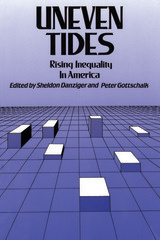
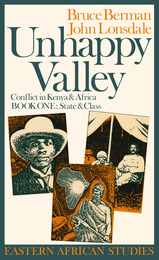
The authors investigate major themes. These include the conquest origins and subsequent development of the colonial state, the contradictory social forces that articulated African societies to European capitalism, and the creation of new political communities and changing meanings of ethnicity in Africa, in the context of social differentiation and class formation. There is substantial new work on the problems of Mau Mau and of wealth, poverty and civic virtue in Kikuyu political thought.
The authors make a fresh contribution to a deeper historical understanding of the development of contemporary Kenyan society and, in particular, of the British and Kukuyu origins of Mau Mau and the emergency of the 1950s.
They also highlight some of the shortcomings of ideas about development, explore the limitations of narrowly structuralist Marxist theory of the state, and reflect on the role of history in the future of Africa.
Book One on State and Class will be used by students of African history as well as of colonial Kenya; it is also concerned with the theory of history and of political science.
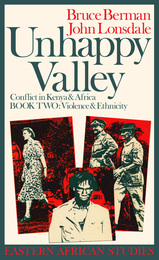
The authors investigate major themes. These include the conquest origins and subsequent development of the colonial state, the contradictory social forces that articulated African societies to European capitalism, and the creation of new political communities and changing meanings of ethnicity in Africa, in the context of social differentiation and class formation. There is substantial new work on the problems of Mau Mau and of wealth, poverty and civic virtue in Kikuyu political thought.
The authors make a fresh contribution to a deeper historical understanding of the development of contemporary Kenyan society and, in particular, of the British and Kukuyu origins of Mau Mau and the emergency of the 1950s.
They also highlight some of the shortcomings of ideas about development, explore the limitations of narrowly structuralist Marxist theory of the state, and reflect on the role of history in the future of Africa.
Book Two on Violence and Ethnicity gives new insights into popular consciousness, into revolutionary change and into the subtle realities of ethnicity; it will be of particular value to readers of Ngugi.
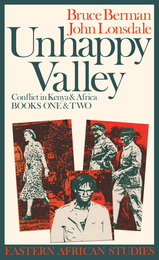

When the first edition of this book was published, the Christian ScienceMonitor called it "one of the mostconcise and informative books toappear on Italy since the end of Fascism." Thoroughly revised and updated, this third edition insures thatProfessor Hughes' work will retain itspreeminence as the best single introduction to contemporary Italy.
Professor Hughes outlines the geographic, economic, and psychological factors that have conditionedItaly's development, and reviews thetraditional contacts between Italy andthe United States, in particular theimmigration of Italians to this country. The chapters on Italy's historicaldevelopment interpret the trends andforces--the "legacy" of Fascism,anti-Fascism, the Second WorldWar--that still affect Italy today.Hughes' treatment of Italy's cultural,economic, and international status issuccinct and stimulating.
Two new chapters have been added for this third edition, dealing with the problems produced by the country's rapid industrial growth. The first situates the new Italy in its ecological and social context, delineating the stresses that have resulted from rapid change, among them political terrorism and the protest movements of women and of youth. The second assesses the transformation of Italian public life that the leading Eurocommunist party in the Westernworld has brought about.

Analyzing the political culture of the Andean republics of Peru, Bolivia, and Ecuador and of the United States, Fredrick Pike finds in their relationships deep divergencies in values and goals. Andeans, he shows, have traditionally viewed with suspicion the tenets associated with liberal democracy, secularism, and individualistic capitalism. In a detailed study of Andean politics, economics, social classes, and cultural patterns in the nineteenth and twentieth centuries, Pike determines that revolutionary ideology often merely masked the ambitions of aspiring elites anxious to retain the traditional order but wishing to wrest its advantages from incumbent elites. He shows the appeal of Marxism and of recent external-domination, internal-dependency theories, as well as the basic conservatism of land-reform programs and approaches to the "Indian problem."
Pike also speculates on whether an "iron law of dependency" is involved in Andean relations with the United States. He discusses the role of multinational corporations and the increasing "privatization of dependency." In the emerging postmodern era, Pike suggests, the values of Western-style modernity are even less viable in Andean America and indeed may not be able to survive in the United States.
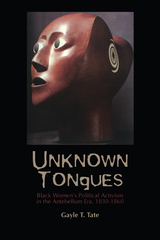
Unknown Tongues examines the social and economic factors of northern industrialization, social reform, and black nationalism, all of which undergirded black women’s political consciousness during the decades before the American Civil War. The linkages between black women’s roles in the “culture of resistance” in slave communities and their transformations in the urban market economy fueled the development of black women’s political consciousness. As community activists and then as abolitionists, black urban women organized and protested against slavery, racism, sexism, and its attendant ills. Driven by market forces of nascent capitalism, black women created broad- based protest responses to the white power structure. Unknown Tongues explores the material realities that underpinned black women’s political development as well as the transformative stages of their political consciousness and activity.
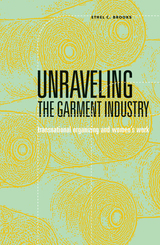
Brooks analyzes a two-pronged problem in consumer boycott campaigns against labor abuse in the garment industry. First, how are we to understand the political necessities of local protest such as the right to unionize against the emphasis placed on consumer boycotts? Second, what and whose agency is privileged or obscured within the symbolic economies and the politics of information deployed by these campaigns? Tying both of these questions together is a commitment to seeing globalization as embedded in the everyday realities of the local.
Drawing attention to the race, class, and gender assumptions central to powerful consumer boycotts, Brooks reveals how these movements unintentionally reinforce the global economic forces they denounce.
Ethel C. Brooks is assistant professor of women’s and gender studies and sociology at Rutgers University.
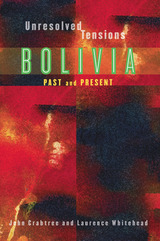
This volume brings together an expert group of commentators and participants from within the Bolivian political arena to offer diverse perspectives and competing views on issues of ethnicity, regionalism, state-society relations, constitutional reform, economic development, and globalization. In this way, the contributors seek to reassess Bolivia's past, present, and future, consider the ways in which the nation's historical developments flow from these deeper currents, and assess the opportunities and challenges that arise within the new political context.
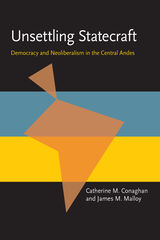
Conaghan and Malloy draw on insights from the political economy literature, viewing policy making as a “historically conditioned” process, and they conclude that the disturbing tendencies their research reveals are not due to regional pathology but are part of the more general experience of postmodern democracy.

Gaza, the centre of Palestinian nationalism and resistance to the occupation, is the linchpin of the Israeli-Palestinian conflict and the key to its resolution. Since 2005, Israel has deepened the isolation of the territory, severing it almost completely from its most vital connections to the West Bank, Israel and beyond, and has deliberately shattered its economy, transforming Palestinians from a people with political rights into a humanitarian problem.
Sara Roy unpacks this process, looking at US foreign policy towards the Palestinians, as well as analysing the trajectory of Israeli policy toward Gaza, which became a series of punitive approaches meant not only to contain the Hamas regime but weaken Gazan society.
Roy also reflects on Gaza's ruination from a Jewish perspective and discusses the connections between Gaza's history and her own as a child of Holocaust survivors. This book, a follow up from the renowned Failing Peace, comes from one of the world's most acclaimed writers on the region.

Gaza, the centre of Palestinian nationalism and resistance to the occupation, is the linchpin of the Israeli-Palestinian conflict and the key to its resolution. Since 2005, Israel has deepened the isolation of the territory, severing it almost completely from its most vital connections to the West Bank, Israel and beyond, and has deliberately shattered its economy, transforming Palestinians from a people with political rights into a humanitarian problem.
Sara Roy unpacks this process, looking at US foreign policy towards the Palestinians, as well as analysing the trajectory of Israeli policy toward Gaza, which became a series of punitive approaches meant not only to contain the Hamas regime but weaken Gazan society.
Roy also reflects on Gaza's ruination from a Jewish perspective and discusses the connections between Gaza's history and her own as a child of Holocaust survivors. This book, a follow up from the renowned Failing Peace, comes from one of the world's most acclaimed writers on the region.


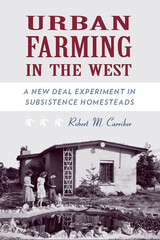
Robert Carriker examines for the first time the intricate histories of these subsistence homestead projects, which have long been buried in bureaucratic records and clouded by misunderstanding, showing that in many ways they were among the agency’s most successful efforts. He provides case studies of the projects, rescuing their obscure histories using archival documents and rare photographs. He also reveals the machinations of civic groups and private citizens across the West who jockeyed for access to the funds being allotted for New Deal community building.
By describing what took place on these western homesteads, Carriker shows that the DSH’s agenda was not as far-fetched as some have reported. The tendency to condemn the Division and its projects, he argues, has failed to appreciate the good that came from some of the individual homestead communities—particularly those in the Far West.
Although overshadowed by the larger undertakings of the New Deal, some of these western communities remain thriving neighborhoods—living legacies to FDR’s efforts that show how the country once chose to deal with economic hardship. Too often the DSH is noted for its failures; Carriker’s study shows that its western homesteads were instead qualified accomplishments.

Why, Diane Davis asks, has Mexico City, once known as the city of palaces, turned into a sea of people, poverty, and pollution? Through historical analysis of Mexico City, Davis identifies political actors responsible for the uncontrolled industrialization of Mexico's economic and social center, its capital city. This narrative biography takes a perspective rarely found in studies of third-world urban development: Davis demonstrates how and why local politics can run counter to rational politics, yet become enmeshed, spawning ineffective policies that are detrimental to the city and the nation.
The competing social and economic demand of the working poor and middle classes and the desires of Mexico's ruling Partido Revolucionario Institutional (PRI) have led to gravely diminished services, exorbitant infrastructural expenditures, and counter-productive use of geographic space. Though Mexico City's urban transport system has evolved over the past seven decades from trolley to bus to METRO (subway), it fails to meet the needs of the population, despite its costliness, and is indicative of the city's disastrous and ill-directed overdevelopment. Examining the political forces behind the thwarted attempts to provide transportation in the downtown and sprawling outer residential areas, Davis analyzes the maneuverings of local and national politicians, foreign investors, middle classes, agency bureaucrats, and various factions of the PRI.
Looking to Mexico's future, Davis concludes that growing popular dissatisfaction and frequent urban protests demanding both democratic reform and administrative autonomy in the capital city suggest an unstable future for corporatist politics and the PRI's centralized one-party government.
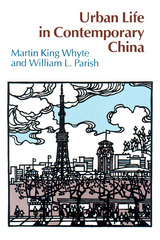
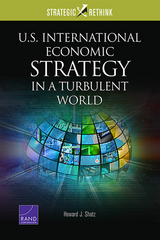
READERS
Browse our collection.
PUBLISHERS
See BiblioVault's publisher services.
STUDENT SERVICES
Files for college accessibility offices.
UChicago Accessibility Resources
home | accessibility | search | about | contact us
BiblioVault ® 2001 - 2024
The University of Chicago Press









